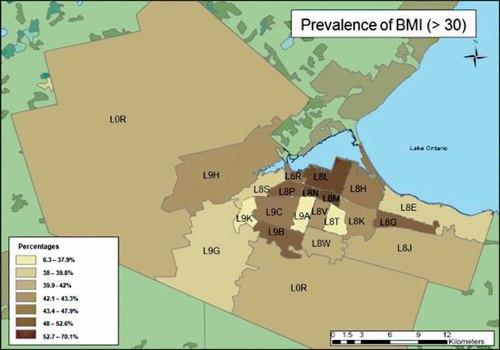下载PDF
{"title":"以社区为基础的糖尿病自我管理方法","authors":"D Sherifali RN, PhD, CDE, J Greb MPA (HAS), G Amirthavasar BSc Kin, H Gerstein MD, MSc, S Gerstein","doi":"10.1002/edn.178","DOIUrl":null,"url":null,"abstract":"<p>The ability to self-manage one's diabetes is challenged by the limited availability of clinic-based resources. This paper seeks to describe and determine the impact of Diabetes Hamilton (DH), a novel, voluntary, community-based programme in Hamilton, Ontario, that aims to facilitate self-management behaviours by supplementing existing resources.</p><p>DH registrants who completed a baseline questionnaire from February 2000 to March 2007 were included in the cross-sectional survey (n=3161). A total of 2994 individuals were also included in the trend analysis, examining the impact of DH on self-management behaviours.</p><p>Half of DH registrants are female (51.2%), with a mean BMI of 30.8 (SD 7.5), a mean age of 61.6 years (SD 14.6) and a mean age of 48.6 years at diagnosis (SD 16.7). A third of registrants reported insulin use (33.4%) and >90% reported having had an annual blood pressure and cholesterol test respectively. Trend analysis of behaviours showed an increase in cholesterol screening ( <i>p</i><0.00), diabetes provider visits ( <i>p</i><0.00), and medication use for glycaemic control and vascular protection ( <i>p</i><0.02).</p><p>Although DH reaches motivated, well-educated individuals in the community, some diabetes self-management behaviours improved. Strategies to engage greater public participation across various demographics (e.g. ethnicity, education, age) are ongoing. Copyright © 2011 FEND. Published by John Wiley & Sons, Ltd.</p>","PeriodicalId":100496,"journal":{"name":"European Diabetes Nursing","volume":"8 2","pages":"54-59"},"PeriodicalIF":0.0000,"publicationDate":"2011-08-05","publicationTypes":"Journal Article","fieldsOfStudy":null,"isOpenAccess":false,"openAccessPdf":"https://sci-hub-pdf.com/10.1002/edn.178","citationCount":"4","resultStr":"{\"title\":\"A community-based approach for the self-management of diabetes\",\"authors\":\"D Sherifali RN, PhD, CDE, J Greb MPA (HAS), G Amirthavasar BSc Kin, H Gerstein MD, MSc, S Gerstein\",\"doi\":\"10.1002/edn.178\",\"DOIUrl\":null,\"url\":null,\"abstract\":\"<p>The ability to self-manage one's diabetes is challenged by the limited availability of clinic-based resources. This paper seeks to describe and determine the impact of Diabetes Hamilton (DH), a novel, voluntary, community-based programme in Hamilton, Ontario, that aims to facilitate self-management behaviours by supplementing existing resources.</p><p>DH registrants who completed a baseline questionnaire from February 2000 to March 2007 were included in the cross-sectional survey (n=3161). A total of 2994 individuals were also included in the trend analysis, examining the impact of DH on self-management behaviours.</p><p>Half of DH registrants are female (51.2%), with a mean BMI of 30.8 (SD 7.5), a mean age of 61.6 years (SD 14.6) and a mean age of 48.6 years at diagnosis (SD 16.7). A third of registrants reported insulin use (33.4%) and >90% reported having had an annual blood pressure and cholesterol test respectively. Trend analysis of behaviours showed an increase in cholesterol screening ( <i>p</i><0.00), diabetes provider visits ( <i>p</i><0.00), and medication use for glycaemic control and vascular protection ( <i>p</i><0.02).</p><p>Although DH reaches motivated, well-educated individuals in the community, some diabetes self-management behaviours improved. Strategies to engage greater public participation across various demographics (e.g. ethnicity, education, age) are ongoing. Copyright © 2011 FEND. Published by John Wiley & Sons, Ltd.</p>\",\"PeriodicalId\":100496,\"journal\":{\"name\":\"European Diabetes Nursing\",\"volume\":\"8 2\",\"pages\":\"54-59\"},\"PeriodicalIF\":0.0000,\"publicationDate\":\"2011-08-05\",\"publicationTypes\":\"Journal Article\",\"fieldsOfStudy\":null,\"isOpenAccess\":false,\"openAccessPdf\":\"https://sci-hub-pdf.com/10.1002/edn.178\",\"citationCount\":\"4\",\"resultStr\":null,\"platform\":\"Semanticscholar\",\"paperid\":null,\"PeriodicalName\":\"European Diabetes Nursing\",\"FirstCategoryId\":\"1085\",\"ListUrlMain\":\"https://onlinelibrary.wiley.com/doi/10.1002/edn.178\",\"RegionNum\":0,\"RegionCategory\":null,\"ArticlePicture\":[],\"TitleCN\":null,\"AbstractTextCN\":null,\"PMCID\":null,\"EPubDate\":\"\",\"PubModel\":\"\",\"JCR\":\"\",\"JCRName\":\"\",\"Score\":null,\"Total\":0}","platform":"Semanticscholar","paperid":null,"PeriodicalName":"European Diabetes Nursing","FirstCategoryId":"1085","ListUrlMain":"https://onlinelibrary.wiley.com/doi/10.1002/edn.178","RegionNum":0,"RegionCategory":null,"ArticlePicture":[],"TitleCN":null,"AbstractTextCN":null,"PMCID":null,"EPubDate":"","PubModel":"","JCR":"","JCRName":"","Score":null,"Total":0}
引用次数: 4
引用
批量引用
A community-based approach for the self-management of diabetes
The ability to self-manage one's diabetes is challenged by the limited availability of clinic-based resources. This paper seeks to describe and determine the impact of Diabetes Hamilton (DH), a novel, voluntary, community-based programme in Hamilton, Ontario, that aims to facilitate self-management behaviours by supplementing existing resources.
DH registrants who completed a baseline questionnaire from February 2000 to March 2007 were included in the cross-sectional survey (n=3161). A total of 2994 individuals were also included in the trend analysis, examining the impact of DH on self-management behaviours.
Half of DH registrants are female (51.2%), with a mean BMI of 30.8 (SD 7.5), a mean age of 61.6 years (SD 14.6) and a mean age of 48.6 years at diagnosis (SD 16.7). A third of registrants reported insulin use (33.4%) and >90% reported having had an annual blood pressure and cholesterol test respectively. Trend analysis of behaviours showed an increase in cholesterol screening ( p <0.00), diabetes provider visits ( p <0.00), and medication use for glycaemic control and vascular protection ( p <0.02).
Although DH reaches motivated, well-educated individuals in the community, some diabetes self-management behaviours improved. Strategies to engage greater public participation across various demographics (e.g. ethnicity, education, age) are ongoing. Copyright © 2011 FEND. Published by John Wiley & Sons, Ltd.


